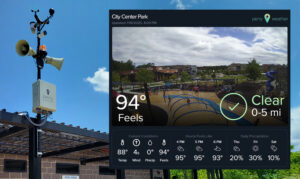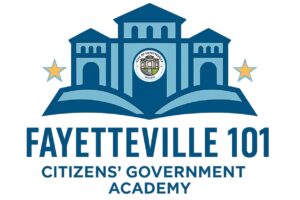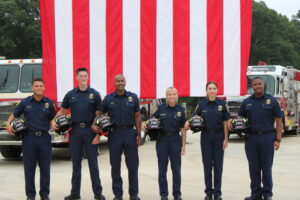By ROBERT LADD
American Legion Post 105 Historian
Fayetteville’s historic and iconic Log Cabin was completed in late August or early September 1936, 75 years ago. The Log Cabin is located at 180 Glynn Street South (Ga. Highway 85) in downtown Fayetteville, just south of the old Fayette Courthouse and across the street from the Fayette County Administrative Complex.
Begun in the third year of the administration of President Franklin D. Roosevelt, the cabin was constructed using federal funds from one of Roosevelt’s signature public jobs program, the Works Progress Administration.
It is the home of American Legion Fayette County Post 105 and the Legions’ Post 105 Auxiliary. An additional historical note: Sept. 20, 2011 is the 84th anniversary of Post 105 receiving its American Legion National Charter honoring Fayette County’s World War I veterans.
This Log Cabin has been used for more then a home for Post 105. During the last 75 years the Post’s Log Cabin has been used for a large number of activities and groups. It has hosted local church start-ups and civic group meetings. It is reported that it was used as a temporary school classroom and courthouse when there was a fire at a school and when there was a fire at the County Courthouse.
It has been used for family reunions, cheerleading training, Girl and Boy Scout meetings, weddings, christenings, business meetings/training, craft and sports card sales, etc. Also during the 1960s it was the County Youth Center.
This log cabin attracts the attention of drivers as they travel through Fayetteville. It sits in the midst of more modern buildings; its aged, rustic look is somewhat of a mismatch. The building construction was started in April or May 1935 and completed in August or September 1936.
This land was temporally transferred to Fayette County during our nation’s Great Depression which started in October 1929 and lasted until the early 1940s.
The citizens of Fayette County were having a very difficult time. The local farmers had experienced multiple years of cotton crop failures. According to newspaper files and historical journals, the Great Depression came to the citizens of Fayette County early and lasted longer then other areas in our nation.
To build the permanent home for the Post and help the county’s citizens, who were having a very difficulty time providing basic care for their families, Dr. Thomas J. Busey, Sr. and his wife, Lucille Busey (a nurse), were able to help their fellow Post members and the citizens of the county by providing more then healthcare.
According to information gathered from several senior county citizens, documents from the Fayette County Historical Society and Dr. T.J. Busey, Jr., both of his parents served in World War I and were charter members of American Legion Post 105. They served the county as its primary physician and nurse for over 46 years. In 1935-1936 Dr. Busey was the Commander of Post 105 and Mrs. Busey was president of the Post 105 Auxiliary.
Dr. Thomas J. Busey, Sr. purchased the Blalock’s old barn and stables property, which was not being used and in very poor condition, then donated the land to Post 105 to build a home for the Post veterans. The Post members were meeting at the local high school, churches and members’ homes.
In November 1935 the Blalock property was temporarily transferred to Fayette County to qualify for Works Progress Administration (WPA) federal funds to build the log cabin.
To meet WPA requirements and under county administration and supervision, local citizens were hired, local material (logs, stone and building materiel like concrete, nails, shingles, etc.) were purchased. The log cabin was constructed with local labor per federal requirements.
The foundation, two massive stone fireplaces and its pine logs were meticulously crafted by hand. This federal funded WPA project helped a large number of Fayette County citizens feed and clothe their families. The land and the completed Log Cabin were transferred to Post 105 on Sept. 12, 1936.
For those who have not been inside the Log Cabin they have missed viewing how the master carpenters utilized their skills. It has a very large main room (1,980 square feet) with two large fireplaces that are no longer used. It has a smaller room (360 sq. ft.) used for meetings, a kitchen and two bathrooms, and a storage area.
Post 105 is seeking help to preserve this historic and iconic Log Cabin. Termites, powderpost beetles, carpenter bees and 75 years of use have done a lot of wear and tear to the cabin logs and floor. The Post is seeking assistance and funding to preserve this county historical building; donations are tax deductable. Preserving this building does more the help our Legion veterans – it will help the community.
Post 105’s historian Robert Ladd is searching for pictures and stories about building the Post Log Cabin. He is requesting assistance in contacting the Jim Hazelton family and the Betty Wilkinson family.
If you have any information, primarily pictures from 1935-1936 or special events at the Log Cabin call him at 770-460-7142. Copies of the pictures and notes will be put on file at the Fayette County Historical Society.
The motto of the American Legion is “Still Serving America.” It’s people helping people. It’s Americans taking care of America. The following are just a few of the ways our members are “Still Serving America.”
• Actively support and assist the local VA hospital by providing health and welfare kits (comfort items that the hospital does not have a budget to provide: toothbrushes/toothpaste, socks, writing material, books, etc.)
• Provide support to families of troops who are on active duty and/or mobilized and deployed.
• Assist families whose veteran is ill or who has died.
• Flag Education. Through this program, our youth are taught flag etiquette and proper display of the United States Flag.
• Boys and Girls State Programs. The Post selects outstanding high school students to attend a week-long program where students actively participate in learning how to establish local, county and state governments.
• The high school Oratorical Competitions. An opportunity for high school students to compete for scholarship funds by being able to speak on their knowledge of the Constitution of the United States and citizen’s responsibilities, rights and privileges.
• Scouting Sponsorship. The Post supports local the local Boy Scout and Girl Scout programs.












Leave a Comment
You must be logged in to post a comment.